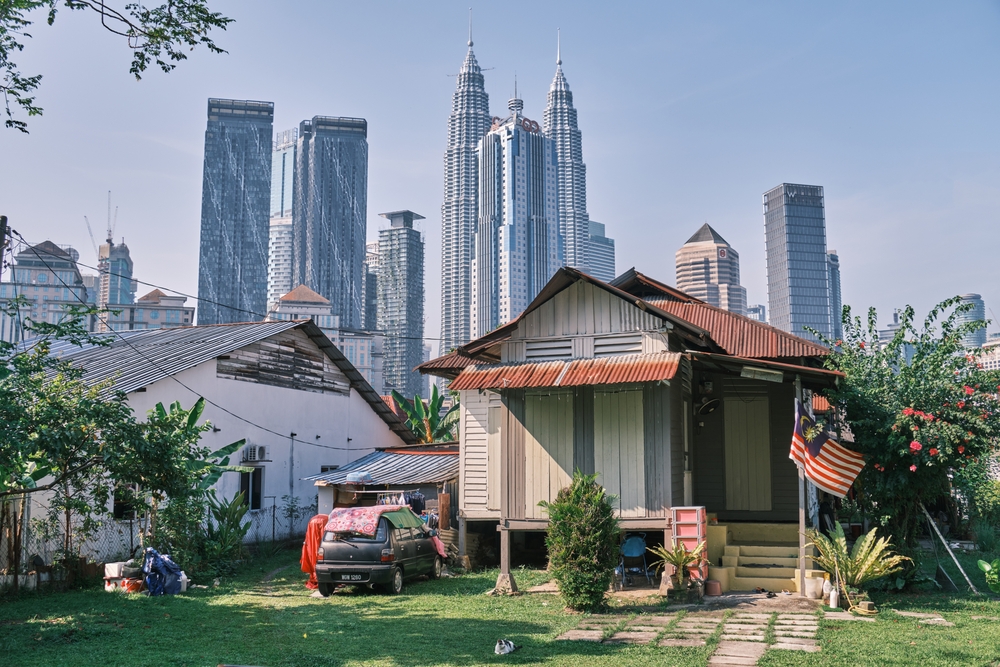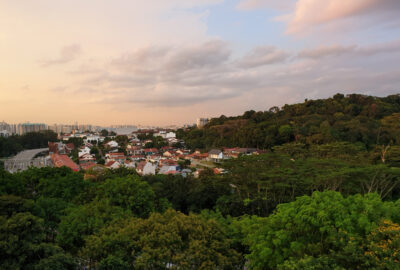Malaysia’s housing transformation: Can the new public housing model solve the affordable housing crisis?
Program Residensi Rakyat (PRR) offers subsidised housing with a focus on sustainability and community

Malaysia’s new public housing model, Program Residensi Rakyat (PRR), is expected to bring a significant shift in the country’s approach to affordable housing. According to The Straits Times, Housing and Local Government Minister Nga Kor Ming outlined that the PRR aims to create a more integrated, sustainable, and liveable environment for low-income families, incorporating commercial viability, green spaces, and community centres.
The construction cost for each PRR unit is set at MYR300,000 (USD62,700), with such units sold to the low-income group at a significantly reduced price of MYR60,000. This considerable subsidy is intended to alleviate housing affordability challenges, with an additional MYR10,000 to MYR15,000 put aside for maintenance and sinking funds. However, to prevent the exploitation of this heavily subsidised model, the government has imposed a 10-year moratorium on selling PRR units.
Additionally, the PRR programme emphasises sustainability through transit-oriented development and green buildings, designed to be 30 percent more energy efficient compared to standard structures. Despite these efforts, Nga noted that Malaysia’s public housing budget is far lower than other countries, underscoring the need for increased funding to meet the demands of a growing population.
While the PRR offers hope for affordable housing, it is not without challenges. Datuk Ar. Ezumi Harzani Ismail, President of the Malaysian Institute of Architects (PAM) 2020-2022 and Chairperson of the Judging Panel for PropertyGuru Asia Awards Malaysia in partnership with iProperty.com.my, reveals that “the heavy reliance on government subsidies for the PRR programme could cause a considerable strain on the national budget, limiting the number of available units and reducing the opportunities for first-time homebuyers. This scheme, intended to alleviate housing woes, entails a substantial investment of MYR300,000 per residential unit, out of which the government shoulders a staggering 75 percent – a substantial MYR240,000 subsidy.”
Ezumi also highlighted that the PRR programme, despite its good intentions, does not fully address the broader housing shortage issue. The limited allocation of units means that only a fraction of those in need will benefit, requiring a more comprehensive approach to tackling housing challenges in Malaysia. He also feels that the financial commitment allocated towards the programme diverts vital funds away from other pressing concerns, such as education and healthcare.
“In the grand scheme of things, the PRR programme offers a small window of opportunity for qualified households to own a home at a fraction of its original price. However, we must acknowledge the inherent limitations of this system. It cannot single-handedly resolve the housing shelter crisis, nor can it provide hope to all those in need. Therefore, a comprehensive approach that considers diverse solutions is imperative in addressing the multifaceted challenges of our housing landscape.”
The local winners at the 18th PropertyGuru Asia Property Awards Grand Final 2023 highlight Malaysia’s progress in promoting inclusive and diverse residential options. The recognition for Best Affordable Homes Developer (Asia) awarded to Perbadanan Kemajuan Negeri Selangor (PKNS) reflects the industry’s commitment to creating cost-effective housing. Other notable wins in the sector include Best Housing/Landed Development (Asia) for Sime Darby Property’s Ilham Residence, Best Township Masterplan Design (Asia) for Eastern & Oriental Berhad’s Andaman, and Best Condo Interior Design (Asia) for Eupe Corporation Berhad’s Est8 @ Seputeh.
Meanwhile, global real estate consultancy firm JLL remains optimistic about the Malaysian market, as reported by The Sun. Yulia Nikulicheva, JLL Malaysia’s Head of Research and Consultancy, noted that the first quarter of 2024 could see notable transactions driven by both international and domestic investors. Stuart Crow, JLL’s Asia Pacific Capital Markets Chief Executive Officer, stated that while the cost of debt remains high, a potential interest rate cut in 2024 could change investor sentiment, leading to sector diversification.
When it comes to Malaysia’s rental growth in major cities, the rapid growth and urbanisation have driven rental prices up, affecting the overall cost of living for residents. Ezumi points out that this trend can lead to a widening socio-economic gap, as lower-income families struggle with high rental costs, often requiring them to downsize, commute from distant suburbs, or share living spaces.
He added: “As cities continue to evolve and grow, it is essential for architects, policymakers, and urban planners to address the challenges of housing affordability. Innovative solutions such as mixed components development where people can learn, live, and work without the need to travel with private cars can improve housing affordability. Without the need to provide two car parks per unit, strata housing prices can be reduced by MYR60,000 to MYR120,000 per unit. It will also reduce the car ownership burdens of the residents.
Besides that, mixed-income housing developments, incorporating affordable housing mandates, or creating incentives for developers to provide affordable rental options can also help mitigate the impact on the cost of living. By promoting inclusive and diverse residential options, cities can strive to maintain a balanced socio-economic fabric, ensuring that all residents, regardless of their income level, have the opportunity to call these bustling urban centres home and provide opportunities for lower-income earners to stay and work in these areas.”
Overall, Malaysia’s housing sector is undergoing significant changes with initiatives like the PRR aiming to create more affordable and sustainable housing options. However, challenges remain, and a careful approach to policy, planning, and investment is crucial to ensure that these efforts address the country’s broader housing needs in 2024 and beyond.
Know of any award-worthy residential, commercial, or industrial projects in the country? Nominate them for the 11th annual PropertyGuru Asia Awards Malaysia in partnership with iProperty.com.my on or before 31 May 2024. To know more, visit AsiaPropertyAwards.com/Award/Malaysia/.
Gynen Kyra Toriano, Digital Content Manager at PropertyGuru, wrote this article. For more information, email: [email protected].
Recommended
Meet the expert helping overseas investors crack Australia’s property market
Ivan Lam of property advisors Charter Keck Cramer helps clients navigate Australia’s complex real estate dynamics
6 spots to check out in Singapore’s Bukit list neighbourhood
The sought-after Singapore neighbourhood offers lifestyle amenities, green space, and new residential projects
Thailand’s real estate sector watches closely as the Shinawatras return to power
Time will tell if the return to power in Thailand of the Shinawatras will lift the country’s ailing real estate sector
China’s homebuying surge: Can new stimulus measures keep the market rally alive?
Stimulus measures have sparked a surge in homebuying activity around China, but many are sceptical the shift will endure







